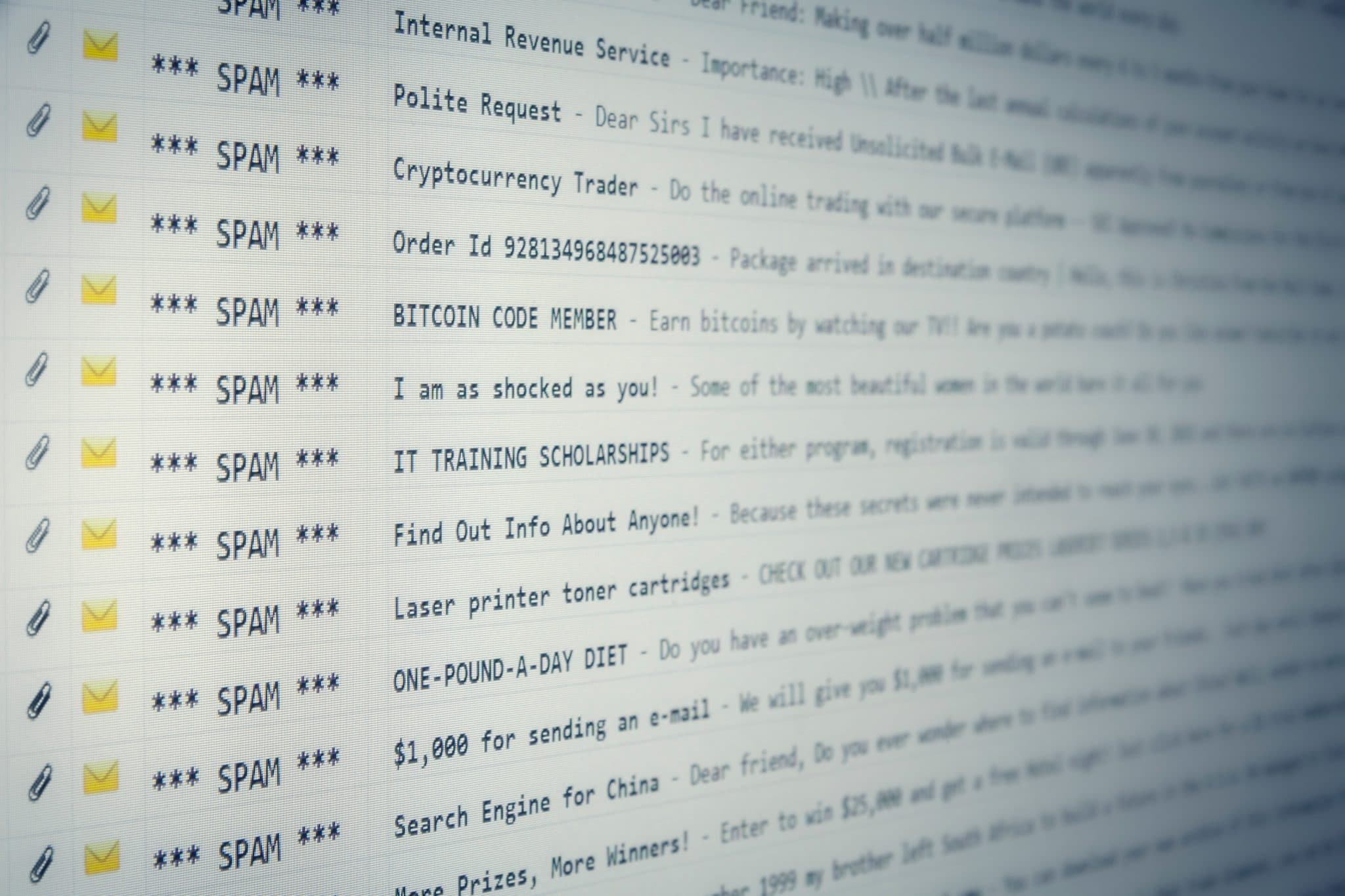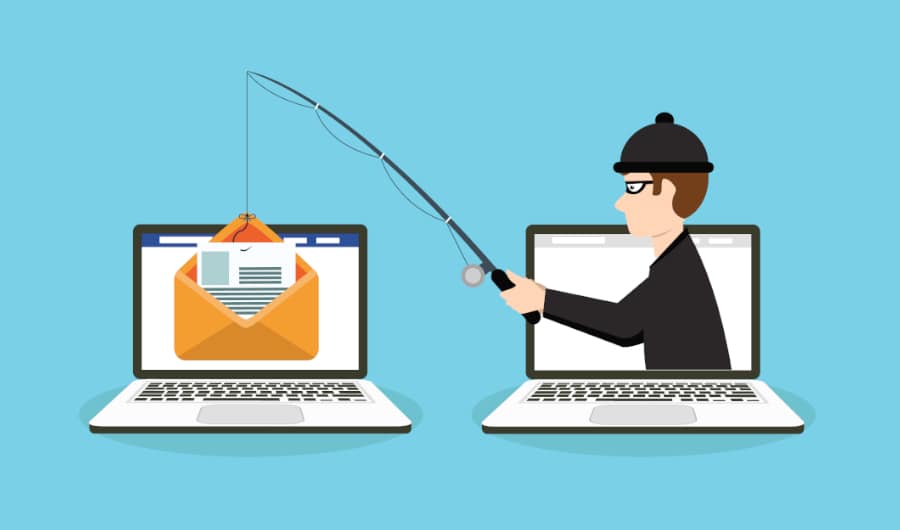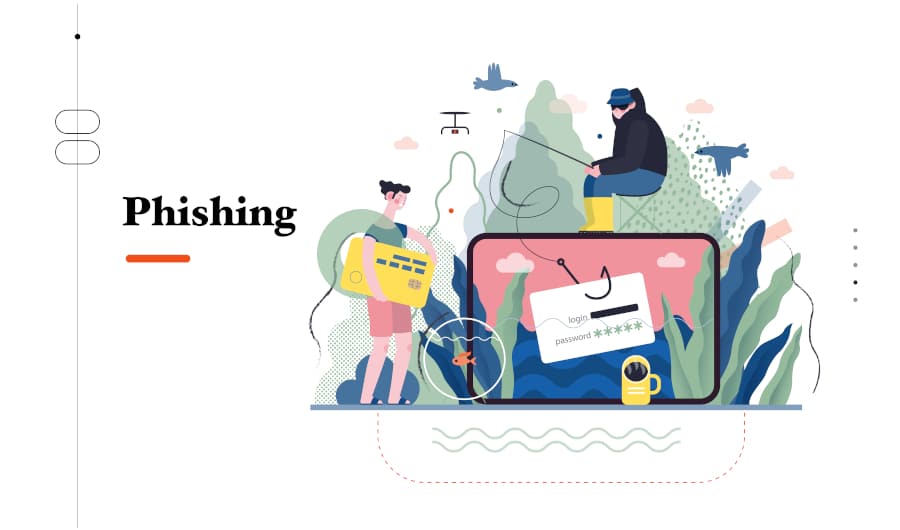Today, phishing is one of the most common tactics that scammers use to hack your device and gain access to your credentials.
Did you get an email like this?
Hello!
My name is Jennie.
Your website or a website that your company hosts is infringing on a copyright-protected images owned by myself.
Check out this document with the links to my images you used at YOUR DOMAIN NAME and my earlier publications to get the evidence of my copyrights.
Download it right now and check this out for yourself:
A LONG AND OBSURE LINK WOULD BE HERE
I believe you have willfully infringed my rights under 17 U.S.C. Section 101 et seq. and could be liable for statutory damages as high as $150,000 as set forth in Section 504(c)(2) of the Digital Millennium Copyright Act (”DMCA”) therein.
This letter is official notification. I seek the removal of the infringing material referenced above. Please take note as a service provider, the Digital Millennium Copyright Act requires you, to remove or disable access to the infringing materials upon receipt of this notice. If you do not cease the use of the aforementioned copyrighted material a lawsuit will be commenced against you.
I have a good faith belief that use of the copyrighted materials described above as allegedly infringing is not authorized by the copyright owner, its agent, or the law.
I swear, under penalty of perjury, that the information in the notification is accurate and that I am the copyright owner or am authorized to act on behalf of the owner of an exclusive right that is allegedly infringed.
Best regards,
Jennie Carlson
Do not click on the link!
This email is indeed a phishing email scam. Many business owners are scared and eager to click the link to find out what this threat is all about. Do not worry though – you didn’t do anything wrong as this threat is FAKE.
If you are a website owner, you’ll likely get these types of email messages through your site’s contact form. The scammer would claim that you have copyrighted images on your site, prompting you to click on a link for the list of images.
Do not make the mistake of clicking this link. These scam artists are just trying to scare you!
Read on to learn the techniques that these scammers use and how you can avoid becoming their next victim.
Phishing Scam Format

Based on the reports, these are the usual tactics of scammers claiming copyright infringement:
- The scammers who send copyright infringement threats pretend to be professional photographers, licensed photographers, qualified illustrators, and experienced photographers and illustrators.
- The senders of these fake emails use names similar to Mel, like Mellie, Melina, Melinda, Melina, Meleena, Melissa, Melaina, and Melecia.
- These scammers also use variations on the last name while utilizing various fake email addresses and phone numbers.
Phishing Scammer Goals

These scammers may have different goals, but they’re just trying to scare you and urge you to click the link that they sent. Once you do, you’ll reach a site or download a file that enables them to hack or gain control of your device. If your computer doesn’t have any reliable antivirus software, it will be infected, causing more problems not just on your device but also on your network.
Then, you will be redirected to a page that requires you to enter your personal information. Do not fall into this trap. Otherwise, the scammer can perform the following:
- Hack your other accounts, such as email and bank details
- Demands for a ransom in exchange for your device
- Inject worms or viruses to infect your device and launch attacks against other victims
Ways To Identify Phishing Emails

Avoid becoming a victim of these copy infringement scammers by following the steps below:
- Watch out for poor grammar. These scammers often use awkward wording and ungrammatical sentences. For instance, they would say, “It’s unlawfully.”
- Check for bad spelling. These scammers claim to be professionals. However, they usually have glaring spelling errors in their messages.
- Beware of strange, unsolicited attachments. Do not click on them or download these unrequested attachments because they might just infect your device.
- Hover over the link that they provided, but don’t click on it. Hovering can let you see the real destination of the URL.
- Do not feel intimidated by their threats. Scammers sending these fake emails will scare you by saying they will sue you for violating a law. Stay vigilant and do not immediately believe everything they say.
Protect Yourself From Phishing Scams

Phishing scammers claim to be experienced photographers and illustrators while trying to accuse you of copy infringement. Do not click any link or share your personal information when you receive these fake emails, and follow the tips we have shared above.

